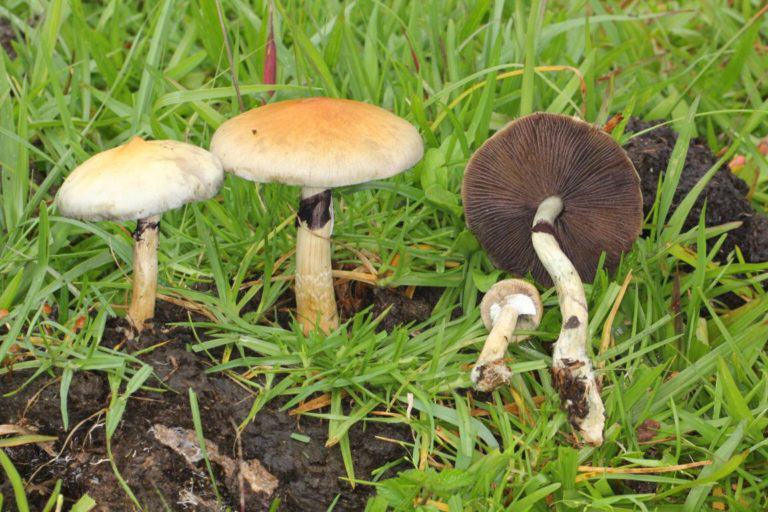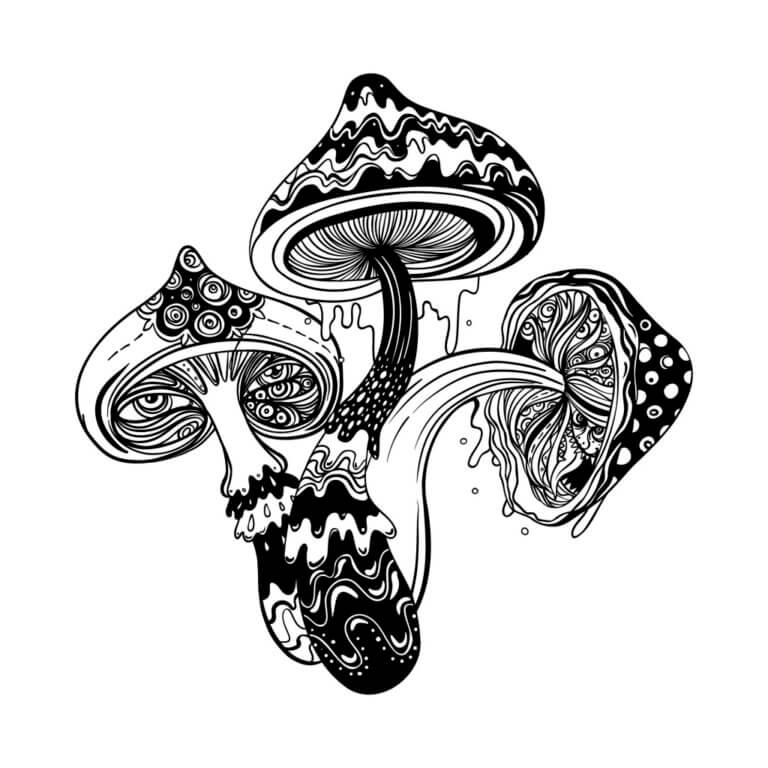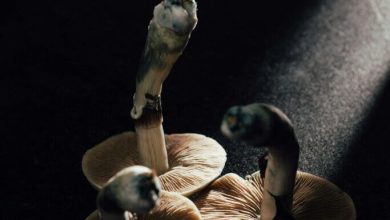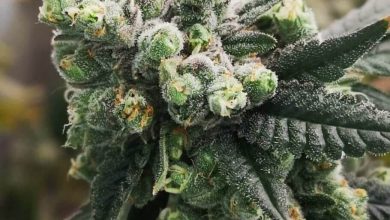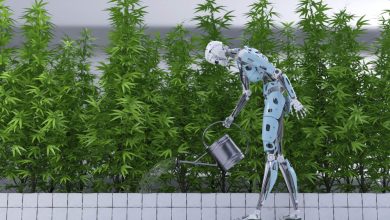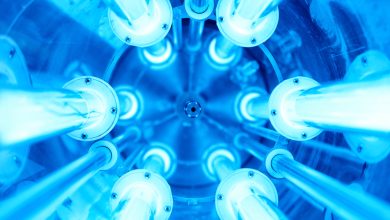What is Psilocin?- Alchimia Grow Shop

At the heart of the exploration of the mind and consciousness, psilocin occupies a very special place. This molecule, closely related to psilocybin and present in certain magic mushrooms, has been used in ancient ceremonies, has been the subject of a renaissance in scientific research and has sparked renewed interest thanks to its effects and therapeutic possibilities.
In this article, we will delve into the fascinating world of psilocin, we will tell you what it is, what its effects are on the mind and body, as well as the current research that is unraveling its therapeutic potential in the treatment of conditions such as depression, anxiety and post-traumatic stress disorder. Join us on a journey into the depths of the human psyche and discover why psilocin continues to challenge our understanding of consciousness and psychedelic therapy.
What is Psilocin?
Psilocin is a psychoactive substance found in certain mushrooms, such as those of the Psilocybe genus, commonly known as magic or hallucinogenic mushrooms. This compound forms naturally in these mushrooms as part of their life cycle and is responsible for the psychedelic effects when consumed. Furthermore, and as we will see, the psilocybin also contained in this type of mushrooms is converted into psilocin when metabolized in the human body, giving rise to the characteristic effects of this substance. So, yes, it’s psilocin and not psilocybin that gets you high. But how is psilocin formed?
- Synthesis in the mushroom: Psilocin is synthesized inside the mushroom cells as part of its metabolism. The precursor to psilocin is psilocybin, which is a prodrug of psilocin. This means that the psilocybin contained in your mushrooms is converted to psilocin in the body once ingested, as psilocin is the active form that has psychedelic effects.
- Biochemical reactions: Psilocybin is formed through biochemical reactions involving several enzymes present in the mushroom. These enzymes convert simple chemical compounds into psilocybin and eventually psilocin.
- Importance in the life cycle: Although the exact function of psilocin in mushrooms is not fully understood, it is believed to play a role in spore dispersal. When fungi release their spores, consumption of psilocin by animals (including humans) can affect their behavior and potentially contribute to the spread of spores through the animals’ feces.
In recent years, the study and scientific research on these substances have gradually shed light on their effects and therapeutic potential, which has led to a resurgence in interest in their use in medical and therapeutic contexts.
What is Psilocybin and what are its effects?
After decades of neglect, psilocybin is nowadays the subject of dozens of studies and clinical trials all over the world, showing especially promising results in the treatment of conditions like depression or anxiety. In addition to its well-known properties in recreational or spiritual contexts, the news regarding its possible medicinal properties further adds to the interest to this compound.
Psychoactivity of Psilocybin and Psilocin
When we consume psilocybin, such as that found in psilocybin mushrooms, our body metabolizes it into psilocin. Psilocybin is a prodrug of psilocin, meaning it is not active in its original form, but is converted to psilocin in the body, leading to the psychedelic effects we experience. Here is the simplified process:
When we ingest psilocybin mushrooms or products containing psilocybin, such as capsules or extracts, the psilocybin reaches the stomach. Once in the body, psilocybin is metabolized by the enzyme phosphorylase in the liver, where it is stripped of a phosphate group. This process converts psilocybin into psilocin, which is the active, psychoactive form of the substance.
Once converted to psilocin, this molecule can cross the blood-brain barrier and affect the central nervous system. Psilocin interacts with serotonergic receptors in the brain, resulting in characteristic psychedelic effects, such as changes in perception, thinking, emotions, and consciousness. As we already know, the effects of psilocin can vary depending on the dose, the environment, and the individual’s mood. The typical psychedelic experience may include visual hallucinations, changes in the perception of time and space, as well as deep introspection.
It is important to note that the consumption of psilocybin and psilocin can have risks and side effects, and their use should be approached with caution and responsibility. Additionally, in many places, these substances are regulated by law, so their possession and use may be illegal. Scientific research into the therapeutic potential of psychedelic substances, including psilocybin and psilocin, has increased in recent years, leading to renewed interest in their use in medical and therapeutic contexts, as you will see below.
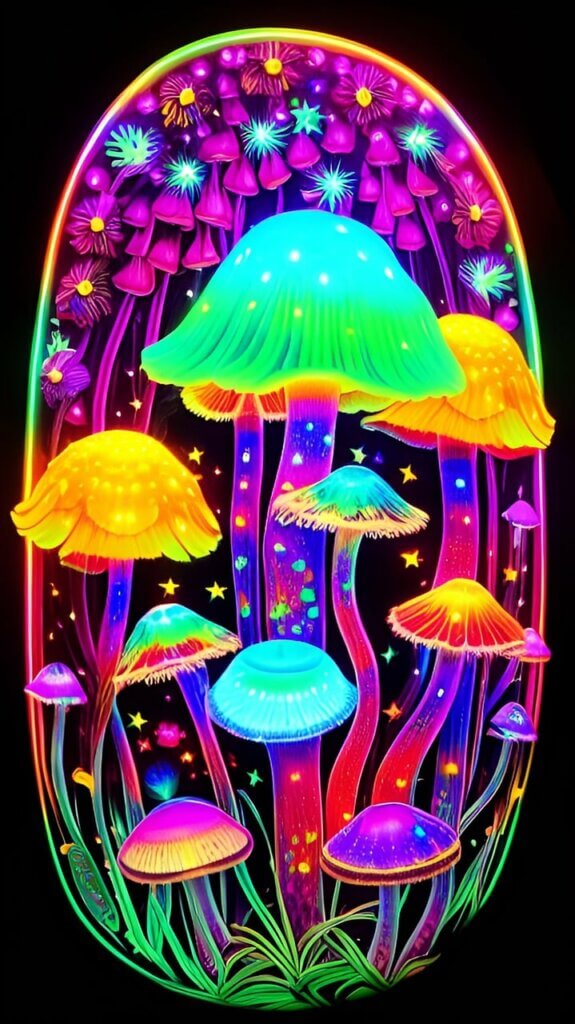
Effects of Psilocin
The effects of psilocin, as with many other psychoactive substances, can vary from person to person and will depend on factors such as dosage, environment, and the individual’s mood. Below we describe some of the common effects associated with this compound:
- Visual hallucinations: One of the most characteristic effects of psilocin is visual hallucinations. Colors may appear more vibrant, patterns may be more intense, and even objects or images may appear that do not actually exist.
- Changes in perception: The perception of time and space can be altered. Individuals may feel that time slows down or speeds up, and the notion of space may become distorted.
- Changes in thinking: Thoughts may become more abstract and fluid. Connections between ideas may seem clearer, and the mind can explore concepts and topics more deeply.
- Euphoria and well-being: Many people experience a state of euphoria and well-being during a psilocin trip. Feelings of joy and connection with the environment or with others can be common.
- Emotional connection: Psilocin can increase empathy and emotional connection with others. Individuals may feel a greater understanding of the emotions and experiences of those around them.
- Spiritual experiences: Some people report profound spiritual or transcendental experiences while under the effects of psilocin. These experiences may include a sense of oneness with the universe or a deeper understanding of existence.
- Anxiety or confusion: In some cases, especially in challenging environments or with high doses, psilocin can cause anxiety, confusion, or fear. A safe and supportive environment is essential to minimize these negative effects.
It should be noted that the effects of psilocin can be highly subjective and depend largely on the dose and the environment and context in which it is consumed. Furthermore, not all experiences with psilocin are necessarily positive, and what we know as bad trips can occur. As we always say, the use of psychedelic substances must be carried out with caution and responsibility! As you will see below, psilocin has shown therapeutic potential in the treatment of conditions such as depression or post-traumatic stress disorder, and research into its safety and effectiveness continues.
Bad trips and magic mushrooms
Without a doubt, a bad mushroom trip is a truly intense experience for those who experience it. But why do these bad trips occur? What is the cause of these types of effects? Can anything be done to stop or mitigate them? Today we answer all these questions.
Applications of psilocin
Psilocin, like psilocybin (which we already know is its chemical precursor), has been studied for its therapeutic potential in various scientific investigations. Although still in an early phase of study, several potential therapeutic applications for psilocin have been explored, some with excellent results. These applications include:
- Major Depressive Disorder (MDD): Psilocin has been investigated as a treatment for treatment-resistant depression. Some studies suggest that a single experience with psychedelics can have a lasting impact on improving mood and reducing symptoms of depression.
- Post-Traumatic Stress Disorder (PTSD): The use of psilocin has been explored in the treatment of PTSD. Research suggests that psychedelic experiences can help individuals process and overcome past trauma.
- Anxiety Disorder and Obsessive-Compulsive Disorder (OCD): Preliminary studies have investigated the effectiveness of psilocin in reducing anxiety and OCD symptoms. It is believed that psychedelic effects can help patients overcome negative patterns of thinking and behavior.
- Addictions: Psilocin has shown potential in the treatment of addictions, such as smoking and substance abuse. Psychedelic experiences can help people change their patterns of addictive behavior.
- Palliative care: Psilocin has been investigated for the relief of anxiety and distress in terminally ill patients. It can help patients face death with greater acceptance.
- Self-exploration and personal growth: Beyond medical applications, some people use psilocin in a context of self-exploration and personal growth, seeking insights, understanding, and spiritual experiences.
Importantly, research on psilocin and other psychedelics is ongoing, and many of these applications are being explored in clinical studies. As more scientific evidence accumulates, its therapeutic use may expand in the future. However, the use of psilocin should be carried out under medical supervision and in a safe environment due to its potential for psychedelic effects and its interaction with the mind and body.
References:
- The Therapeutic Potential of Psilocybin, Henry Lowe, Ngeh Toyang, Blair Steele, Henkel Valentine, Justin Grant, Amza Ali, Wilfred Ngwa, Lorenzo Gordon
- Analysis of Psilocybin-Assisted Therapy in Medicine: A Narrative Review, Shawn Ziff, Benjamin Stern, Gregory Lewis, Maliha Majeed, Vasavi Rakesh Gorantla
- Post-Traumatic Stress Disorder. Treatment with Psychedelic Drugs, New York University
- Psilocybin in the treatment of obsessive-compulsive disorder: What do we know so far?, N. Descalço, Ana Beatriz Medeiros, Cátia Fernandes Santos, Gisela Borges
The articles published by Alchimiaweb, S.L. are reserved for adult clients only. We would like to remind our customers that cannabis seeds are not listed in the European Community catalogue. They are products intended for genetic conservation and collecting, in no case for cultivation. In some countries it is strictly forbidden to germinate cannabis seeds, other than those authorised by the European Union. We recommend our customers not to infringe the law in any way, we are not responsible for their use.
